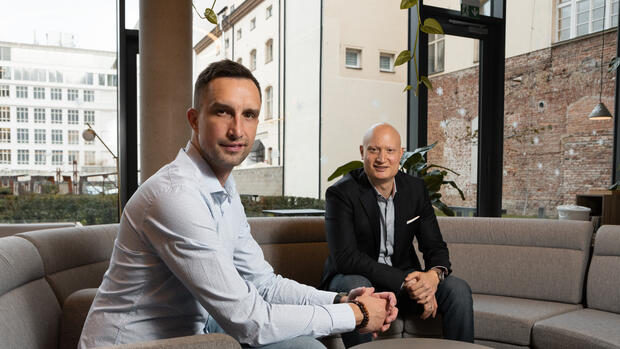“Our core competence is food,” says Bahadir Birkan.
Berlin The food delivery services Bringmeister and Frugee will in future rely on an external service provider for deliveries. The Czech delivery service Dodo is expanding into the German market and has won the two providers as its first customers. It shouldn’t end there. Dodo is looking for further partnerships.
“Our core competence is food. But in other markets we also serve other segments such as the transport of parcels or we take on express deliveries,” said Bahadir Birkan, who is responsible for business in German-speaking countries, the Handelsblatt.
Grocery delivery services operate in a competitive but growing market. Experts predict that eight percent of groceries could be sold online by 2030.
Oda’s quick end as a grocery delivery service
There are currently different models. On the one hand, supermarket chains like Rewe have their own delivery services, on the other hand there are start-ups like Getir and Flink, which deliver groceries from partners within a very short time by bicycle courier. The Czech food delivery service Knuspr is also on the road in some German cities. Lieferando and Wolt also want to make better use of their fleet by expanding deliveries.
In the meantime, the Norwegian supplier Oda was also on the road in Berlin with its own range and delivery service. The abrupt end of the delivery service after six months shows how difficult the business can be for complete newcomers. It was only on Wednesday that Oda announced that it would no longer deliver groceries due to the difficult financing environment and would instead only work as a logistics service provider. Oda had previously taken this step in Finland. The start-up then also competes with Dodo.
>>Read more: Below this order value, no delivery is worthwhile – this is how delivery services have to calculate
“I see Dodo’s business model primarily as suitable for retailers who are approaching the topic of e-food but don’t want to do everything themselves directly because they either lack the resources or the complexity overwhelms them in the first step,” said E-Commerce- Expert Matthias Schu from the Lucerne University of Applied Sciences and Arts. Those who rely on an external partner require less capital, can scale faster and reduce their complexity – but also lose visibility, flexibility and margins.
Dodo is in the black in existing markets
In view of the sometimes low margins and high fleet costs, it is particularly difficult for start-ups such as Getir and Flink to be in the black. Because of the ongoing losses, both companies have massively cut jobs. According to Dodo, it is one step further. “We are a very experienced delivery service provider that is already profitable in the existing markets. We know how to get there,” said Birkan, a longtime Amazon worker.
Last summer, Dodo raised $60 million from investors including Czech-based Rockaway Capital, which also owns Bringmeister. According to Birkan, a large part of this cash injection is now going into expansion in Germany. In addition to the Czech Republic, Dodo is also active in Poland, Hungary, Slovakia, Bulgaria and Austria.
>>Read more about this here: Lieferando starts cooperation with Media-Markt
Dodo had sales of $57 million and fulfilled 5.8 million orders last year – an increase of 49 percent. According to Birkan, the growth can be attributed to the increased demand: “Customers are increasingly asking for fast deliveries that arrive on time in previously defined time windows.”
Software providers such as Bettermile and Urbify, who want to increase the speed of delivery with their technology, also rely on this. “Artificial intelligence is in the foreground,” said Bettermile founder Simon Seeger.
More: Supermarkets are expanding with delivery services
